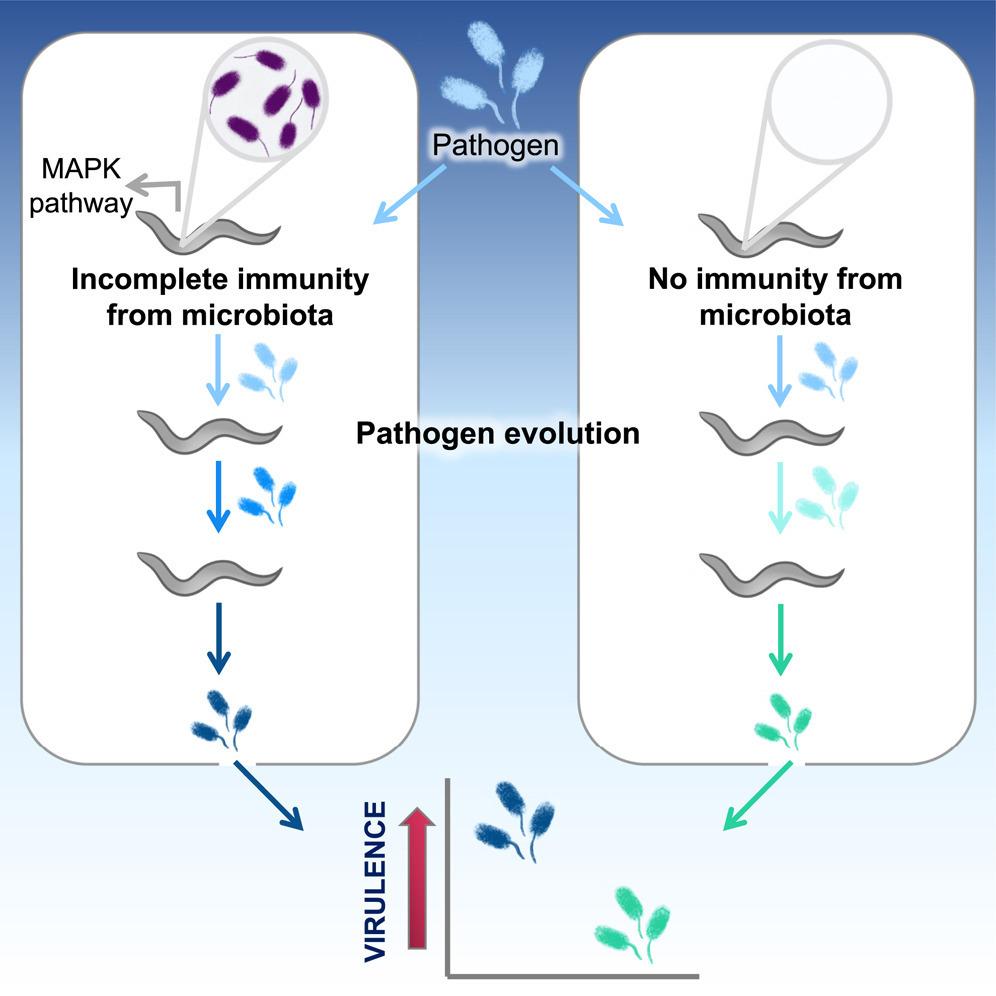
Summary
Incomplete immunity in recovered hosts is predicted to favor more virulent pathogens upon re-infection in the population.
The microbiota colonizing animals can generate a similarly long-lasting, partial immune response, allowing for infection but dampened disease severity. We tracked the evolutionary trajectories of a widespread pathogen (Pseudomonas aeruginosa), experimentally passaged through populations of nematodes immune-primed by a natural microbiota member (P. berkeleyensis). This bacterium can induce genes regulated by a mitogen-activated protein kinase (MAPK) signaling pathway effective at conferring protection against pathogen-induced death despite infection. Across host populations, this incomplete immunity selected for pathogens more than twice as likely to kill as those evolved in non-primed (i.e., naive) or immune-compromised (mutants with a knockout of the MAPK ortholog) control populations. Despite the higher virulence, pathogen molecular evolution in immune-primed hosts was slow and constrained. In comparison, evolving pathogens in immune-compromised hosts were characterized by substantial genomic differentiation and attenuated virulence. These findings directly attribute the incomplete host immunity induced from microbiota as a significant force shaping the virulence and evolutionary dynamics of novel infectious diseases.